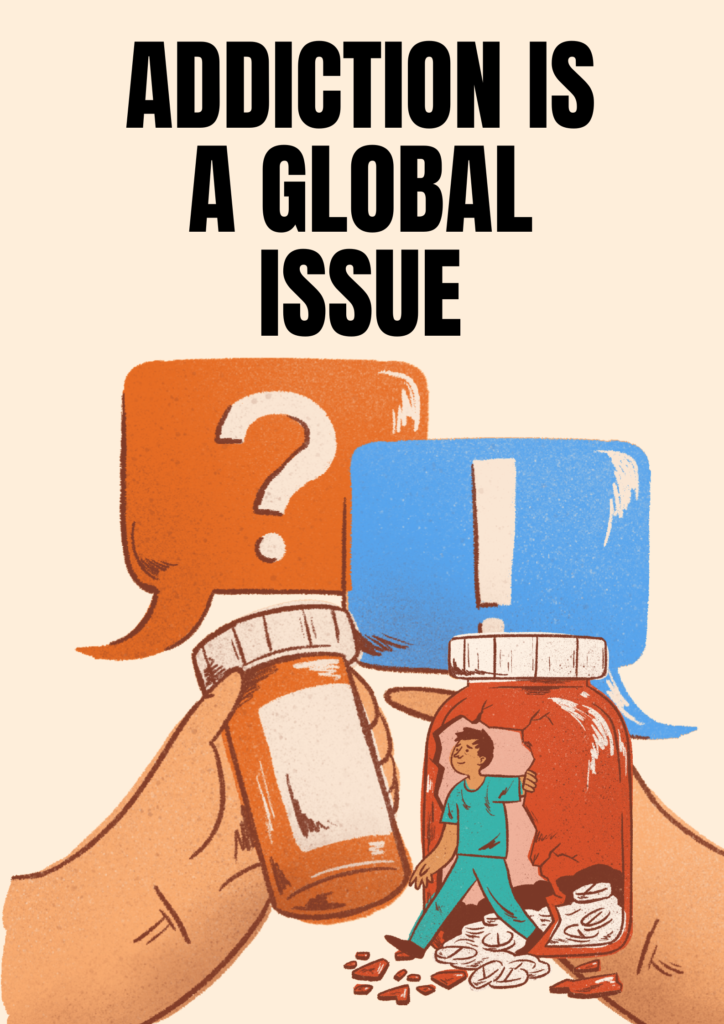
Addiction is a global issue that affects individuals and communities in every corner of the world, and Mali is no exception. In this West African nation, the challenges posed by substance abuse are significant and complex. However, the resilience of the Malian people and the efforts of various stakeholders to address addiction provide a framework for hope and recovery.
The Scope of the Problem
Substance abuse in Mali includes the misuse of alcohol, cannabis, prescription drugs, and increasingly, synthetic drugs. The country’s young population is particularly vulnerable, with many adolescents and young adults falling prey to the allure of these substances. Factors contributing to this rise in addiction include socio-economic instability, lack of education, unemployment, and the stress of living in conflict-affected areas.
Socio-Economic and Health Impacts
The repercussions of addiction in Mali are profound. Economically, it drains resources that could otherwise be used for development and social services. Families often bear the brunt of the financial and emotional toll, as addicted individuals struggle to maintain employment or contribute to household income. Health-wise, addiction leads to a myriad of issues including mental health disorders, the spread of infectious diseases like HIV/AIDS, and an overall decline in life expectancy.
Community and Government Response
In response to the growing problem, community initiatives and government programs have been launched to tackle addiction from multiple angles. Traditional healers play a significant role in rural areas, where access to modern medical facilities is limited. They use local herbs and spiritual practices to treat those afflicted by addiction, often integrating their methods with modern medical advice to provide a holistic approach to recovery.
The Malian government has also taken steps to address substance abuse. Policies aimed at reducing the availability of illicit drugs and alcohol, coupled with awareness campaigns, are beginning to make a difference. Educational programs targeting youth aim to prevent the onset of addiction by promoting healthy lifestyles and the dangers of substance misuse.
The Role of Non-Governmental Organizations
Non-governmental organizations (NGOs) are crucial in filling the gaps left by limited government resources. Organizations such as Santé et Développement pour Tous (Health and Development for All) provide essential services, including counseling, rehabilitation, and aftercare for those recovering from addiction. These NGOs often work in partnership with international bodies to bring much-needed funding and expertise to Mali.
Rehabilitation and Reintegration
Effective rehabilitation programs are vital for tackling addiction. In Mali, rehabilitation centers offer detoxification, therapy, and vocational training to help individuals rebuild their lives. These centers emphasize the importance of reintegration into society, ensuring that recovering addicts have the skills and support they need to avoid relapse and become productive members of their communities.
Moving Forward: A Multi-Faceted Approach
The fight against addiction in Mali is ongoing and requires a multi-faceted approach. Continued efforts to reduce the supply of drugs, combined with education and prevention programs, are essential. Strengthening the healthcare system to better address mental health issues and providing more support for rehabilitation centers can enhance the effectiveness of these efforts.
Furthermore, international collaboration is key. Sharing best practices and securing funding from global health organizations can amplify local initiatives and provide the resources needed to make a substantial impact.
While the challenges of tackling addiction in Mali are formidable, the combined efforts of the government, NGOs, traditional healers, and the community offer a beacon of hope. With sustained commitment and comprehensive strategies, Mali can make significant strides in overcoming the scourge of addiction and fostering a healthier, more resilient population.